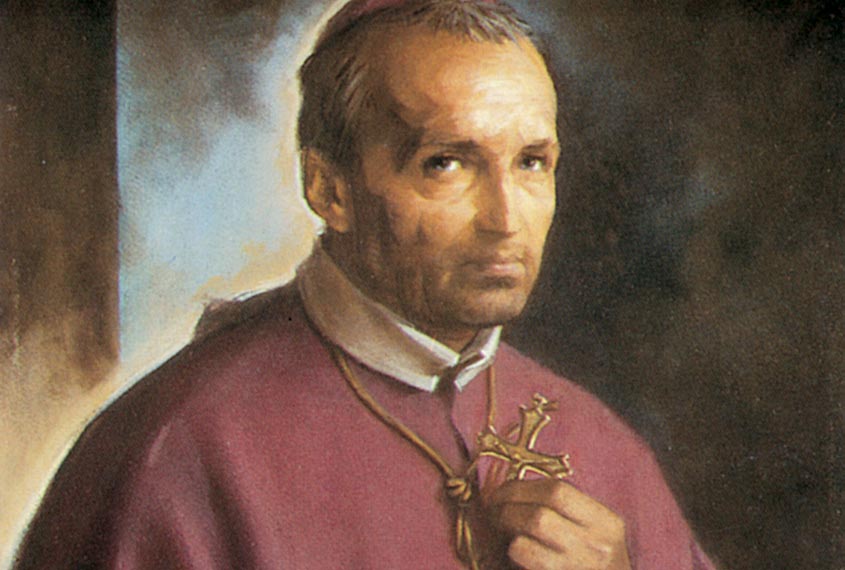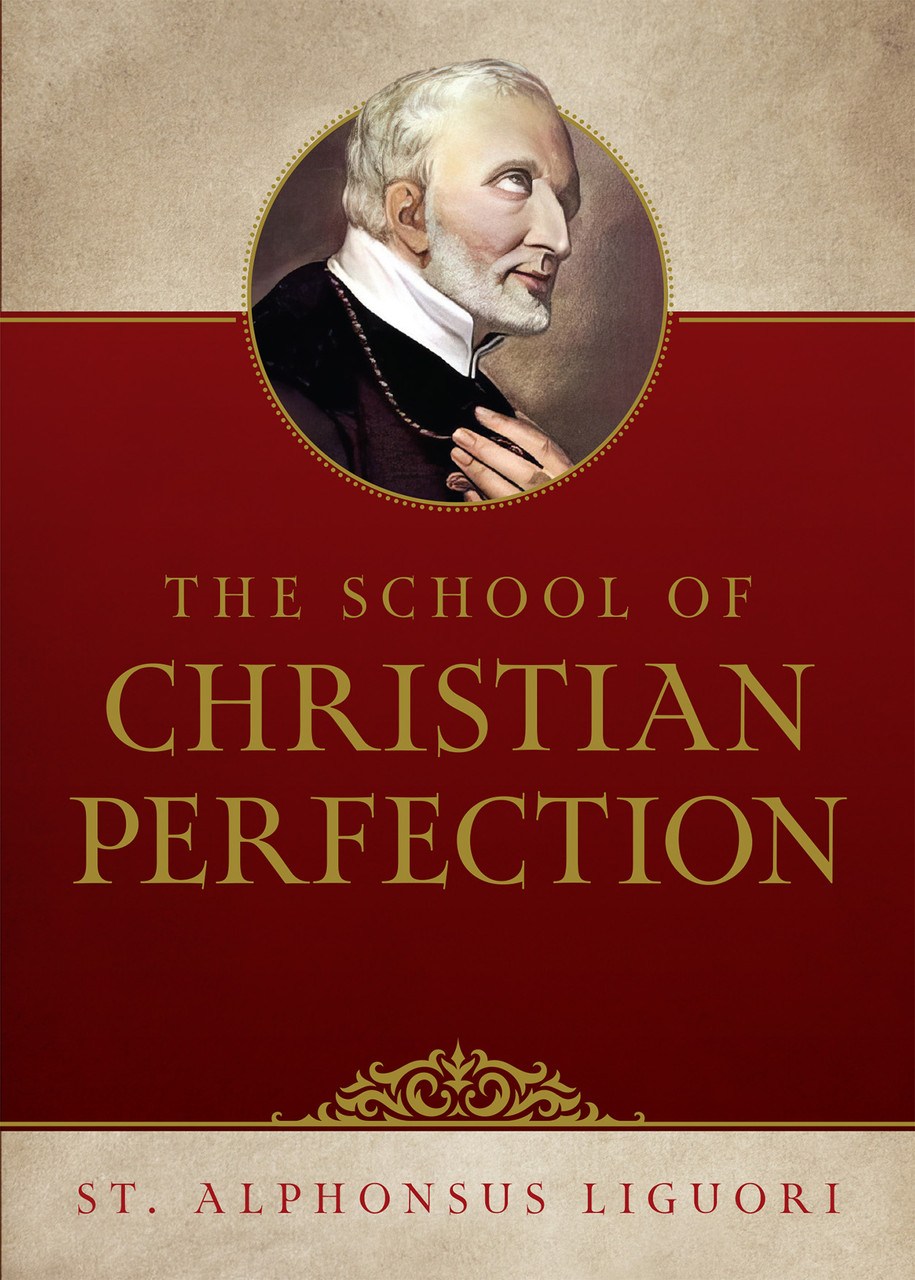Many Christians believe in God, yet they find themselves ensnared in an endless struggle with sin. In this excerpt, St. Alphonsus Liguori addresses those Christians who believe in God, yet do not live a life that reflects their faith. This stirring reflection is useful to all souls seeking to live a life of Christian perfection.
A Life That Reflects Our Belief
To be pleasing and acceptable in the sight of God, it is not enough merely to believe all that our holy faith teaches us; we must, moreover, regulate our life in accordance with our belief. Pico of Mirandola says: “It is certainly great folly not to wish to believe the Gospel of Christ; but it would be greater folly still to believe it and to live as if you did not believe it.” The unbelieving act very irrationally when they close their eyes so as not to see the abyss towards which they are hastening. But what of the folly of those among the faithful who see the abyss, and with open eyes actually hurl themselves into it? “O my brethren,” exclaims St. James, “what shall it profit if a man say he hath faith, but hath not works? Shall faith be able to save him?” (James 2:14).
Many Christians believe without doubt that there is a just God who will judge them; that endless happiness or eternal misery awaits them; and yet they live as though there were no God, no judgment, no Heaven and no Hell. There are many who believe that our Divine Redeemer was born in the stable at Bethlehem, lived for 30 years in the humble abode at Nazareth, supported Himself by the labor of His hands, and at last, consumed with suffering and sorrow, ended His life on an infamous gibbet; and yet they do not love Him; indeed, they offend Him by innumerable sins. It is to these that St. Bernard addresses his words of warning: “Show by your deeds that you believe; by a virtuous life a Christian must prove that he has faith.”
A Faith Without Works Is Dead
The sinful man who knows the truths of faith, and does not live in accordance with them, has a very weak faith, to say the least. For it stands to reason that if a man firmly believed that the grace of God is the highest and best good he could possess, and that sin robs us of grace and is the greatest evil in this world, he must of necessity change his life. When, therefore, the sinner prefers the miserable goods of this world to his Lord and God, he gives evident proof that he has a very weak faith, if any at all. St. Bernard says: “He who acknowledges God with his tongue but denies Him in deed, dedicates his tongue to the Lord and his soul to the devil.” According to the Apostle St. James, that faith which does not manifest itself by works, is dead. (James 2:17).
If we see a man who betrays no sign of life, and who neither moves, nor speaks, nor breathes, we say he is no longer alive but dead. In like manner, that faith which gives no evidence of vitality by the performance of works of eternal life, we rightly regard as dead. There are Christians who willingly accept those teachings of our holy faith that are confined to the sphere of the intellect, but who give no proof whatever that they believe the truths which affect the will. And yet the latter are as certain and undoubted as the former, for they are all made known to us by one and the same Gospel of Christ. If we believe the doctrine of the Blessed Trinity and the Incarnation of the Divine Word, we must also accept the principles that Christ our Lord has laid down for the regulation of our conduct. It was with this end in view that St. Paul wrote thus to his disciples: “Try your own selves if you be in the faith; prove ye yourselves.” (2 Cor. 13:5). Our Blessed Redeemer has said: “Blessed are the poor in spirit: for theirs is the kingdom of heaven.” (Matt 5:3).
A Battle Against Our Inordinate Desires
The law of Jesus Christ commands us to battle against our inordinate inclinations, to love our enemies, to mortify our body, to be patient in adversities and to place all our hope in the life to come. But all this does not make the life of the truly faithful a sad and sorrowful one. The religion of Jesus Christ says to us, as it were: Come and unite yourselves to Me; I will lead you along a path which to the bodily eyes seems rough and hard to climb, but to those of good will is easy and agreeable. You seek peace and pleasure? Well and good! Which peace is to be preferred? That which, when scarcely tasted, disappears and leaves the heart replete with bitterness, or that which will rejoice and satiate you for all eternity? You strive for honors? Very well! Which do you prefer, that empty honor that disappears like a puff of smoke, or that true and genuine honor which will one day glorify you before the whole world? Ask those who lead a life of faith if the renunciation of this world’s goods makes them sad! Visit the holy Anchorite Paul in his grotto, St. Francis of Assisi on Mount Alverno, St. Mary Magdalen de Pazzi in her convent and ask them if they miss the joys and pleasures of this earth! They will answer without hesitation: No, no; we desire but God alone and nothing else.
Should anyone object that a life according to faith is opposed to nature, I answer: It is, no doubt, opposed to nature—but to a depraved and fallen nature. It is burdensome, yes, but only for those who rely on their own strength and resources. But for one who trusts in God and begs for His assistance, the observance of the law of Jesus Christ is sweet and easy. “Taste and see,” says the Psalmist, “how sweet is the Lord.” (Ps. 33:9). “Come to me, all you that labor and are burdened, and I will refresh you. Take up my yoke upon you and learn of me because I am meek and humble of heart: and you shall find rest to your souls. For my yoke is sweet and my burden light.” (Matt. 11:28–30).
ooo
This article is taken from a chapter in The School of Christian Perfection by Saint Alphonsus Liguori which is available from TAN Books.









